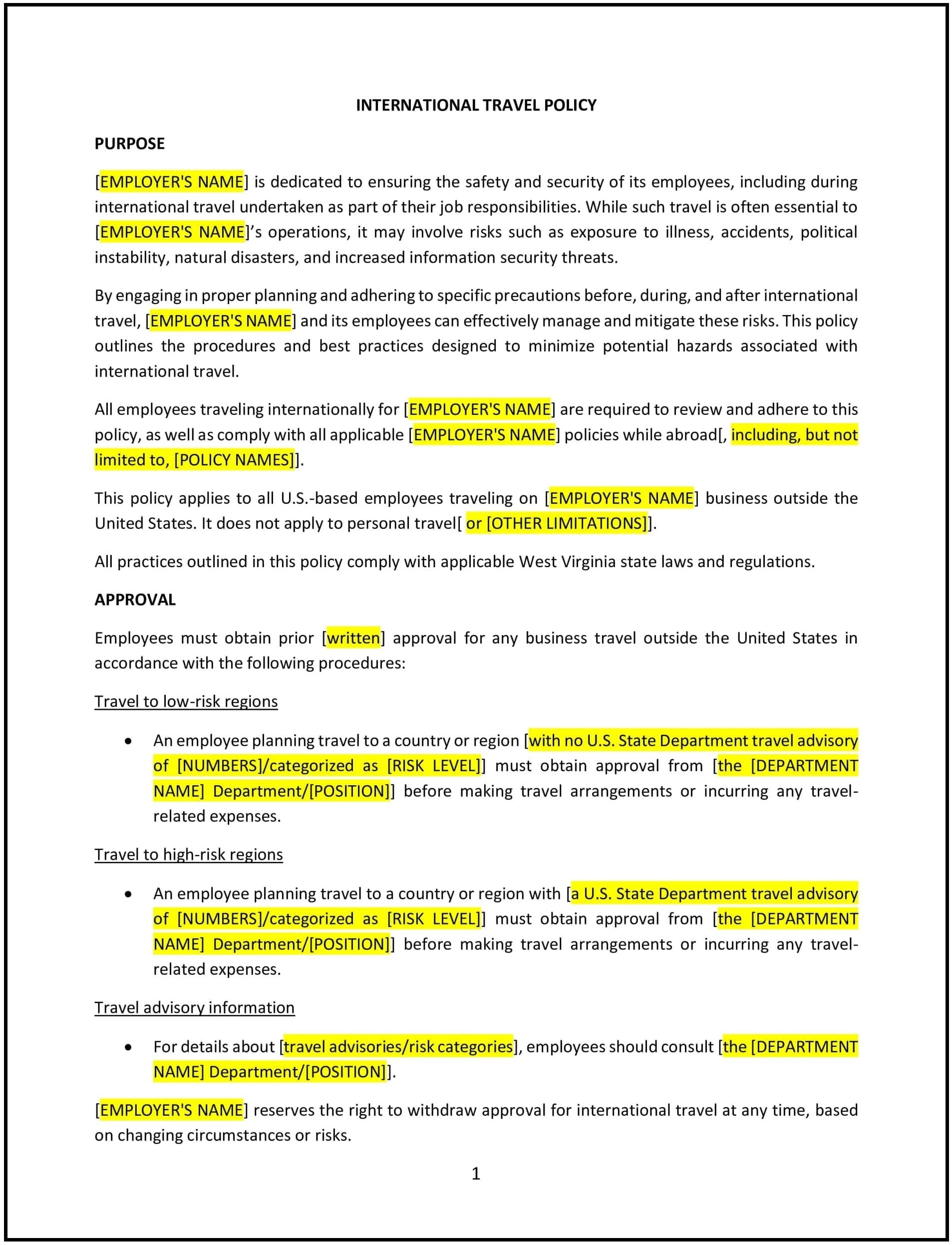International travel policy (West Virginia): Free template
Got contracts to review? While you're here for policies, let Cobrief make contract review effortless—start your free review now.

Customize this template for free
International travel policy (West Virginia)
In West Virginia, an international travel policy provides clear guidelines for employees traveling abroad for business purposes. This policy ensures employee safety, manages travel expenses, and supports compliance with federal and international regulations. It establishes procedures for planning, approving, and conducting international travel while addressing potential risks.
The policy outlines pre-travel requirements, expense guidelines, and safety protocols to ensure consistent and efficient travel management.
How to use this international travel policy (West Virginia)
- Define travel eligibility: Specify which employees or roles qualify for international travel and the purpose of approved trips, such as conferences, client meetings, or training programs.
- Outline approval processes: Provide steps for obtaining travel authorization, including submitting travel plans, budgets, and necessary documentation.
- Address expense management: Detail allowable expenses, such as airfare, lodging, meals, and transportation, and the reimbursement process.
- Establish safety protocols: Include guidelines for health precautions, emergency contacts, and compliance with international laws and travel advisories.
- Support compliance: Ensure the policy aligns with federal travel regulations, visa requirements, and international business standards.
Benefits of using an international travel policy (West Virginia)
- Promotes employee safety: Establishes clear protocols for minimizing risks and addressing emergencies during international travel.
- Supports compliance: Helps adhere to federal regulations, visa requirements, and international business laws.
- Controls expenses: Provides clear guidelines for managing travel costs and processing reimbursements efficiently.
- Enhances efficiency: Streamlines the travel planning and approval process, reducing administrative burdens.
- Improves consistency: Establishes uniform standards for international travel across the organization.
Tips for using an international travel policy (West Virginia)
- Communicate expectations: Share the policy with employees who may travel internationally, ensuring they understand the requirements and procedures.
- Provide travel resources: Offer tools and resources, such as pre-travel checklists and emergency contact information, to support employees.
- Monitor travel advisories: Stay updated on international travel advisories and adjust travel plans accordingly to ensure safety.
- Train employees: Provide training on cultural sensitivity, compliance with local laws, and health precautions when traveling abroad.
- Review regularly: Update the policy to reflect changes in international regulations, company priorities, or employee feedback.